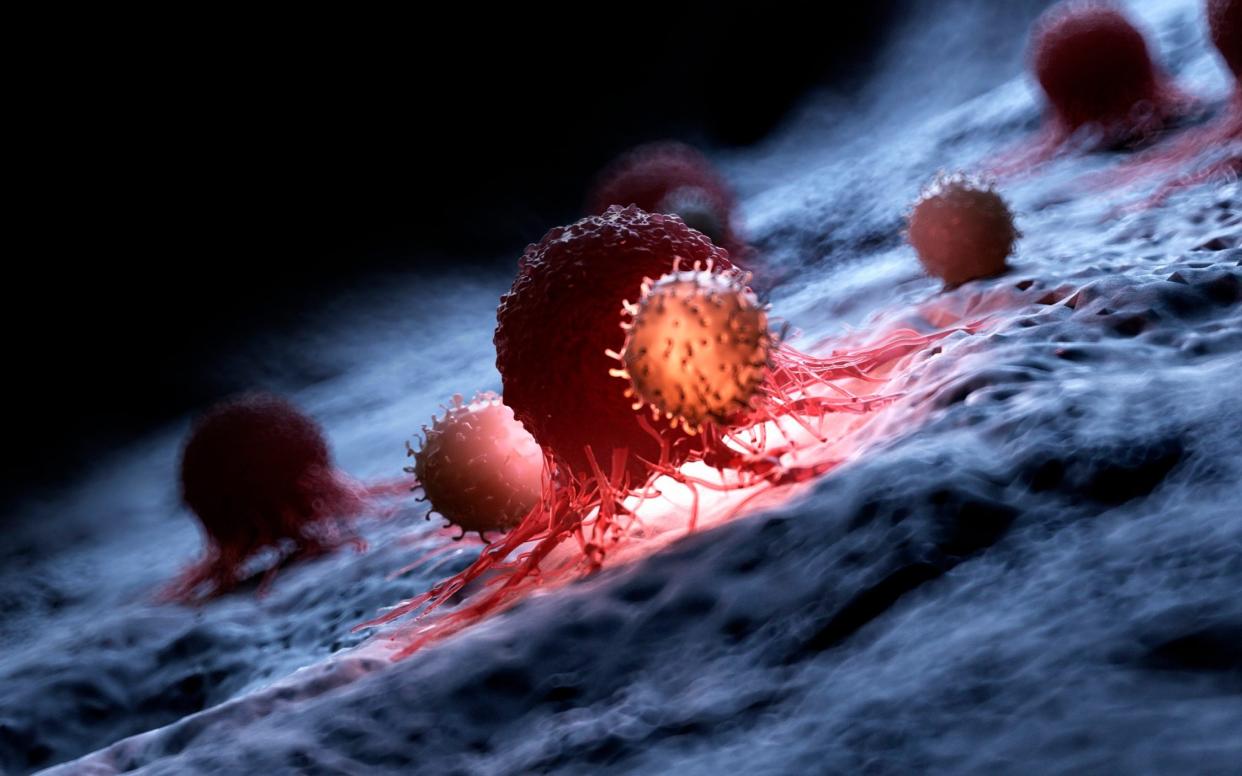Blood cancer drug offers rare hope to sufferers, study finds

A drug to stop the spread of an incurable form of blood cancer cuts the risk of the disease worsening by three quarters, a study has found.
Cilta-cel was found to reduce the risk of disease progression by 74 per cent in people with multiple myeloma who have tried all other forms of treatment and stopped seeing results, including the main myeloma drug lenalidomide.
The drug is also known by its brand name Carvytki and its full moniker Ciltacabtagene Autoleucel. It is a type of CAR-T personalised medicine which involves genetically engineering the patient’s own immune cells to target cancerous tissues.
Dr Binod Dhakal, of the Medical College of Wisconsin, Milwaukee, and lead author of the study, said: “Multiple myeloma is a rare cancer of white blood cells that accounts for about one per cent of all cancers and is considered largely incurable.”
“In patients who are refractory to lenalidomide the outcomes are poor with a median progress and survival of less than one year.”
Speaking at the American Society of Clinical Oncology annual conference in Chicago, US, Dr Dhakal told reporters that the drug is approved in the US to treat multiple myeloma after patients have had four or more prior lines of therapy and in the EU after they have three or more prior lines of therapy.
The patients not taking the drug saw their condition worsen within a year, on average, but data show that three quarters of people on Cilta-cel had not deteriorated at 12 months.
“We also saw that Cilta-cel significantly improved the rate and depth of response,” Dr Dhakal added, with three times as many patients mounting a complete response following the one-time intravenous injection.
“This Cartitude-4 study is setting a new efficacy bar in relapsed refractory multiple myeloma. A single infusion reduces the risk of disease progression or death by 74 per cent. This data supports Cilta-cel as a potential new standard of care for patients.”
There were some reservations over the safety of the treatment but the new data show the treatment was well tolerated by the study’s 419 participants, especially if taken earlier.
Dr Oreofe Odejide said the drug is now a foundation for myeloma patients, but its increasing use has led to a rising number of people with treatment-resistant disease.
“Cilta-cel has not only shown that it delivers remarkably effective outcomes compared to patients’ current options, but also that it can be used safely earlier in the treatment phase,” she said.
Ongoing UK row
The drug is approved for use in the US and Europe but is at the centre of an ongoing row in the UK. Janssen, which manufactures Cilta-cel, last month backed out of The National Institute for Clinical Excellence’s (NICE) review process which could have seen the treatment be recommended for treatment in the UK.
“NICE is unable to make a recommendation on ciltacabtagene autoleucel (Carvykti) for treating relapsed or refractory multiple myeloma in adults,” NICE said in a statement. “This is because Janssen withdrew its evidence submission for the appraisal. We will review this decision if the company decides to make a submission.”
The new data is likely to increase calls for the treatment to be available in the UK and for British patients to have the same access to the cutting-edge, personalised CAR-T treatment as patients in the US and Europe.
It is understood Janssen withdrew from NICE approval as a result of various logistical, medical and clinical issues affecting production of the drug which, despite attempts to get it to the UK, have so far proved insurmountable.
The withdrawal from NICE means the treatment is not available on the NHS and is only available in the UK as part of clinical trials.
“Janssen had agreed with NICE to withdraw the assessment of Cilta-cel in the UK for the treatment of heavily pre-treated patients with multiple myeloma,” a Janssen spokesman said. “Despite our efforts and commitment to advancing this cell therapy for patients and physicians, we were not in a position to progress through the NICE appraisal process.
“While the withdrawal means that patients are not able to access Cilta-cel through the NHS at this time, the clinical trial programme in the UK has not been impacted.
“We recognise the high unmet need of patients with multiple myeloma and remain committed to bringing CAR-T therapy to the multiple myeloma community.”

 Yahoo News
Yahoo News 
